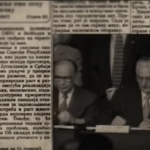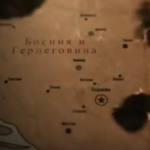The study of history is important in today’s world. For this reason, many historical sites have been created. Such sites tell the history of prominent countries such as Yugoslavia. Students studying history at universities often have to complete writing assignments. One of the most popular academic assignments is the essay. A custom essay is a…
What Are the Highest Paying Jobs in Oklahoma?
If you ever wanted to change your state or you are open to a career far from your current residence, you should look at the Oklahoma job market. This list would also be helpful for Oklahoma natives who search for a job that perfectly suits them. It all depends on your skillset and readiness to…
How the Yugoslav Tribunal Made History
Yugoslavia was an emerging superpower, which rose early in the 17th century. It was comprising modern countries of Slav people, like Serbia, Montenegro, Hungary and Austria. The state later collapsed in the early 90s because of wars and conflicts among the member states. The Yugoslav Tribunal is the first war crimes court in history that…
Death to Fascism – Freedom to the People! (1941–1945)
The disintegration of Yugoslavia began as early as the first days of Hitler’s aggression. On April 10, in Zagreb, the Ustasha proclaimed the creation of the Independent Croatian State (IHH), which included Croatia and Bosnia and Herzegovina. Technically, the head of the IHH was the Italian duke Spoletto, but during the war he never bothered…
Yugoslavia in 1918-1941. 20th century.
In July 1917 on the island of Corfu between the leadership of the Yugoslav Committee (the center of the Yugoslav emigration from Austria-Hungary) and the Serbian government negotiations on the future of the South Slavic peoples began, culminating in the signing of a declaration It proclaimed the inevitability of a unified South Slavic state and…
The beginning of the disintegration
The last chairman of the Presidency of Yugoslavia was Stipe (Stjepan) Mesic (from June 3 to October 3, 1991). During his presidency, the main processes of disintegration of the unified state and the separation of a very important part of it, Croatia, took place. Croatia’s attitude to Yugoslavia predetermined the disintegration of the country. The…
Blitzkrieg (April 1941)
“Better war than a pact!” Mass demonstrations under this slogan swept across Yugoslavia as soon as its citizens learned of its accession to the Triple Alliance. The situation worsened by the hour. Serbian Patriarch Gavriel appeared on the radio to denounce the pact with the Germans. During the night of March 26 to 27, 1941,…
The USSR and Yugoslavia: History of a Lost Friendship
The Soviet Union and Yugoslavia: History of a Lost Friendship The Soviet Union and Yugoslavia, which was formed on the Balkan Peninsula in 1918, have always been linked by a rather close but complex relationship. Initially, the state, which included Croatia, Slovenia, Bosnia and Herzegovina, Dalmatia, Serbia and Montenegro, was dominated by a monarchy, and…
Toward Yugoslavia (1918-1920)
From the very beginning of the First World War, some Slovenian and Croatian politicians bet on an Entente victory. Forced to flee Austria-Hungary in war conditions, they created two political centers of Yugoslav emigration in Rome (Italy) and Nis (Serbia). In January 1915, the Yugoslav Committee was established on the basis of the Rome center,…








